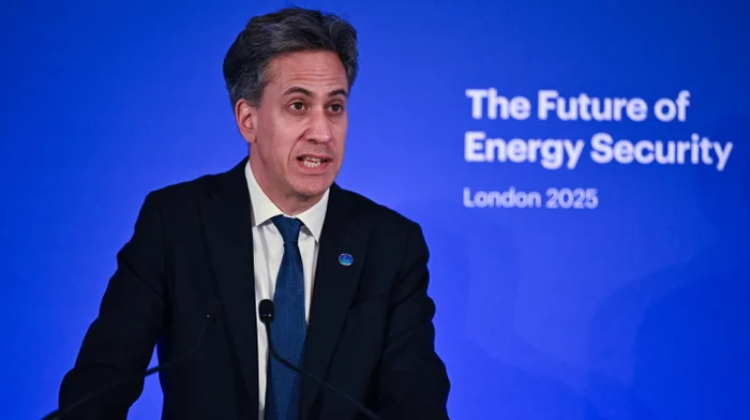UK Secretary of State for Energy Security and Net Zero, Ed Miliband, drew a clear line at the Energy UK 2025 conference in London. Fifteen months into office, he highlighted significant progress in the country’s energy transition but warned that the UK still faces a crucial decision: to accelerate decarbonisation or prolong its reliance on fossil fuels.
“We either run towards clean energy — with a genuine partnership between industry and government — or we double our dependence on fossil fuels,” Miliband told industry leaders, setting the tone for one of the most politically charged interventions of the year.
He underlined that, in just over a year, the UK has authorised record volumes of clean energy, enough to power 7.5 million homes, driven by projects such as the Tillbridge Solar Park. This momentum, he noted, is supported by structural reforms, including the removal of the ‘first come, first served’ grid connection queue, the largest overhaul of planning regulations in a generation, the creation of Great British Energy as a public investment vehicle for renewables, and the launch of new nuclear, hydrogen and carbon capture programmes.
Miliband stressed that the UK’s exposure to international gas markets remains its Achilles’ heel, keeping bills high and price volatility entrenched. “Anyone who claims we can achieve energy security without tackling our fossil fuel dependence is ignoring the evidence before our eyes,” he stated.
He recalled that half of all recessions since 1970 were triggered by oil and gas shocks, while wholesale gas prices remain 75% higher than pre-crisis levels. “Clean energy is not just a climate imperative — it is an economic and national security strategy,” he said.
Miliband also announced the forthcoming Clean Energy Jobs Plan, identifying hundreds of thousands of existing green jobs and many more to be created by 2030. He emphasised the urgent need to modernise ageing electricity networks, many dating back to the 1960s, and to double generation capacity by 2050, as electricity demand is expected to grow by 50% by 2035.
“The question is not whether we will build new infrastructure, but what kind of infrastructure we will build,” he remarked, referring to ongoing investments in wind, solar and energy storage technologies.
According to the Secretary, solar and onshore wind remain the UK’s cheapest energy sources, with the latest auction delivering prices nearly 50% lower than gas-fired generation. The Government, he said, will also deliver £13.2 billion in public investment to retrofit five million homes, expand the Warm Home Discount to benefit three million low-income families, and increase support for 7,000 energy-intensive businesses.
“We want new homes to come with solar panels and clean heating as standard — a common-sense policy backed by both the public and industry,” Miliband added.
He closed his address by warning that the nation stands at a historic crossroads. “We can choose to accelerate towards a clean, secure future, with a real partnership between government and industry — or we can resign ourselves to repeating the mistakes of the past,” he concluded, delivering one of the year’s most decisive speeches in Europe’s energy policy debate.































